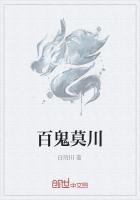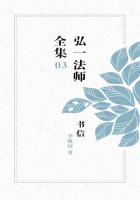According to one legend, he taught men to train the vine to poles, to prune its superfluous foliage, and to extract the juice of the grape. In the papyrus of Nebseni, written about 1550 B.C., Osiris is depicted sitting in a shrine, from the roof of which hang clusters of grapes; and in the papyrus of the royal scribe Nekht we see the god enthroned in front of a pool, from the banks of which a luxuriant vine, with many bunches of grapes, grows towards the green face of the seated deity. The ivy was sacred to him, and was called his plant because it is always green.
3. Osiris a God of Fertility.
AS A GOD of vegetation Osiris was naturally conceived as a god of creative energy in general, since men at a certain stage of evolution fail to distinguish between the reproductive powers of animals and of plants. Hence a striking feature in his worship was the coarse but expressive symbolism by which this aspect of his nature was presented to the eye not merely of the initiated but of the multitude. At his festival women used to go about the villages singing songs in his praise and carrying obscene images of him which they set in motion by means of strings. The custom was probably a charm to ensure the growth of the crops. A similar image of him, decked with all the fruits of the earth, is said to have stood in a temple before a figure of Isis, and in the chambers dedicated to him at Philae the dead god is portrayed lying on his bier in an attitude which indicates in the plainest way that even in death his generative virtue was not extinct but only suspended, ready to prove a source of life and fertility to the world when the opportunity should offer. Hymns addressed to Osiris contain allusions to this important side of his nature. In one of them it is said that the world waxes green in triumph through him; and another declares, Thou art the father and mother of mankind, they live on thy breath, they subsist on the flesh of thy body. We may conjecture that in this paternal aspect he was supposed, like other gods of fertility, to bless men and women with offspring, and that the processions at his festival were intended to promote this object as well as to quicken the seed in the ground. It would be to misjudge ancient religion to denounce as lewd and profligate the emblems and the ceremonies which the Egyptians employed for the purpose of giving effect to this conception of the divine power. The ends which they proposed to themselves in these rites were natural and laudable; only the means they adopted to compass them were mistaken. A similar fallacy induced the Greeks to adopt a like symbolism in their Dionysiac festivals, and the superficial but striking resemblance thus produced between the two religions has perhaps more than anything else misled enquirers, both ancient and modern, into identifying worships which, though certainly akin in nature, are perfectly distinct and independent in origin.
4. Osiris a God of the Dead.
WE have seen that in one of his aspects Osiris was the ruler and judge of the dead. To a people like the Egyptians, who not only believed in a life beyond the grave but actually spent much of their time, labour, and money in preparing for it, this office of the god must have appeared hardly, if at all, less important than his function of ****** the earth to bring forth its fruits in due season. We may assume that in the faith of his worshippers the two provinces of the god were intimately connected. In laying their dead in the grave they committed them to his keeping who could raise them from the dust to life eternal, even as he caused the seed to spring from the ground. Of that faith the corn-stuffed effigies of Osiris found in Egyptian tombs furnish an eloquent and un-equivocal testimony. They were at once an emblem and an instrument of resurrection. Thus from the sprouting of the grain the ancient Egyptians drew an augury of human immortality. They are not the only people who have built the same lofty hopes on the same slender foundation.
A god who thus fed his people with his own broken body in this life, and who held out to them a promise of a blissful eternity in a better world hereafter, naturally reigned supreme in their affections. We need not wonder, therefore, that in Egypt the worship of the other gods was overshadowed by that of Osiris, and that while they were revered each in his own district, he and his divine partner Isis were adored in all.















